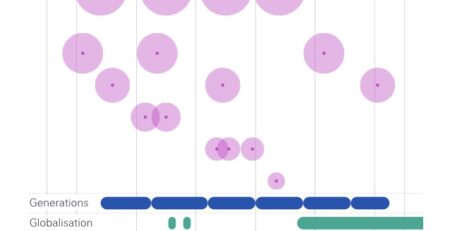Using Panel Tax Data to Examine the Transition to Retirement
By Peter J. Brady & Steven Bass (Investment Company Institute); Jessica Holland & Kevin Pierce (Government of the United States of America – Internal Revenue Service)
Using panel data from the Internal Revenue Service’s Statistics of Income (SOI) Division, we find that most individuals do not experience a reduction in inflation-adjusted spendable income after claiming Social Security. We also examine the composition of income after claiming and find that both Social Security benefits and non-Social Security retirement distributions typically represent substantial shares of income. Examining the five-year period from one year before individuals first receive Social Security retirement benefits to three years after, 81 percent of individuals had income, either directly or through a spouse, from employer retirement plans, annuities, or IRAs; and another 8 percent had a Form 1099-R (indicating a retirement account transaction, such as a rollover, that did not generate income), a Form 5498 (indicating IRA ownership), or both. This study uses the SOI 1999 Edited Panel of individual income tax returns, with information through tax year 2010, supplemented with data from information returns. We structure the data to follow individual taxpayers—specifically, individuals who were the primary or secondary taxpayer on a joint return or the primary taxpayer on a non-joint return in 1999—rather than tax returns. Information returns and various schedules filed with Form 1040 allow us to allocate labor income, Social Security benefits, and retirement income (pension, annuity, and IRA distributions) to primary and secondary filers on joint returns. Information returns also allow us to measure the income of all 1999 taxpayers through 2010 regardless of whether they filed a tax return in a subsequent year or not. We focus on working individuals age 55 to 61 in 1999 who did not receive Social Security benefits in 1999. Comparison with US population counts suggests that nearly all individuals in this category filed a tax return in 1999.
Full Content: SSRN










